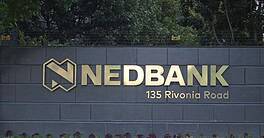Capitalism is increasingly interested in another kind of green.

To give themselves financial incentives to achieve sustainability targets—and signal to stakeholders that they are serious about reaching those goals—a growing number of companies around the world are taking out sustainability-linked loans to meet their financing needs.
At the end of the third quarter of 2019, sustainability-linked loans totaled $71.3 billion, more than double the $32 billion in deals raised during the same period of 2018, Reuters reports. Europe captured the lead position, with 74% of the environmental, social and governance (ESG) volume through late October 2019. The pace picked up in Asia (14% of the total), followed by the Americas (11%) and Japan (1%). These loans, often used to refinance consortium loans, link preset sustainability targets, such as reduced carbon emissions or expanded levels of diversity on the board of directors, to the financial terms of the loan.
Companies may favor these ESG-linked loans over green bonds because the loan proceeds can be used more flexibly; green bonds must be used for a particular project that has a positive environmental or climate impact. ESG instruments can also lead to lower financing costs if companies meet their targets, which can then raise the ESG ratings from external agencies. Increasingly, sustainability is perceived as a material threshold in company financial statements, not only by regulators and investors, but also by the companies themselves.
Karsten Löffler, who leads the Frankfurt School-UNEP Collaborating Centre for Climate & Sustainable Energy Finance, says that using the loans only makes sense if a company has a broader commitment. “Sustainability linked loans are a step in the right direction to linking long-term goals to real changes in business models and business strategy,” he says. The center is a venture of the Frankfurt School of Finance and Management and the United Nations Environment Program.
In March 2019, representatives from leading financial institutions active in the global syndicated loan markets launched the Sustainability Linked Loan Principles, offering guidance on how the instruments should fit into a company’s corporate social responsibility strategy, target-setting, reporting practices and review process.
In December 2018, Germany joined the list of European countries actively using sustainability-linked loans and bonds when the consumer goods and chemical company Henke set up a green syndicated credit facility. That was followed offerings from technology company Voith Group, Deutsche Böerse Group, communal services and electricity provider Stadtwerke Müenchen, mechanical engineering company Norma Group and Telefónica Deutschland.



